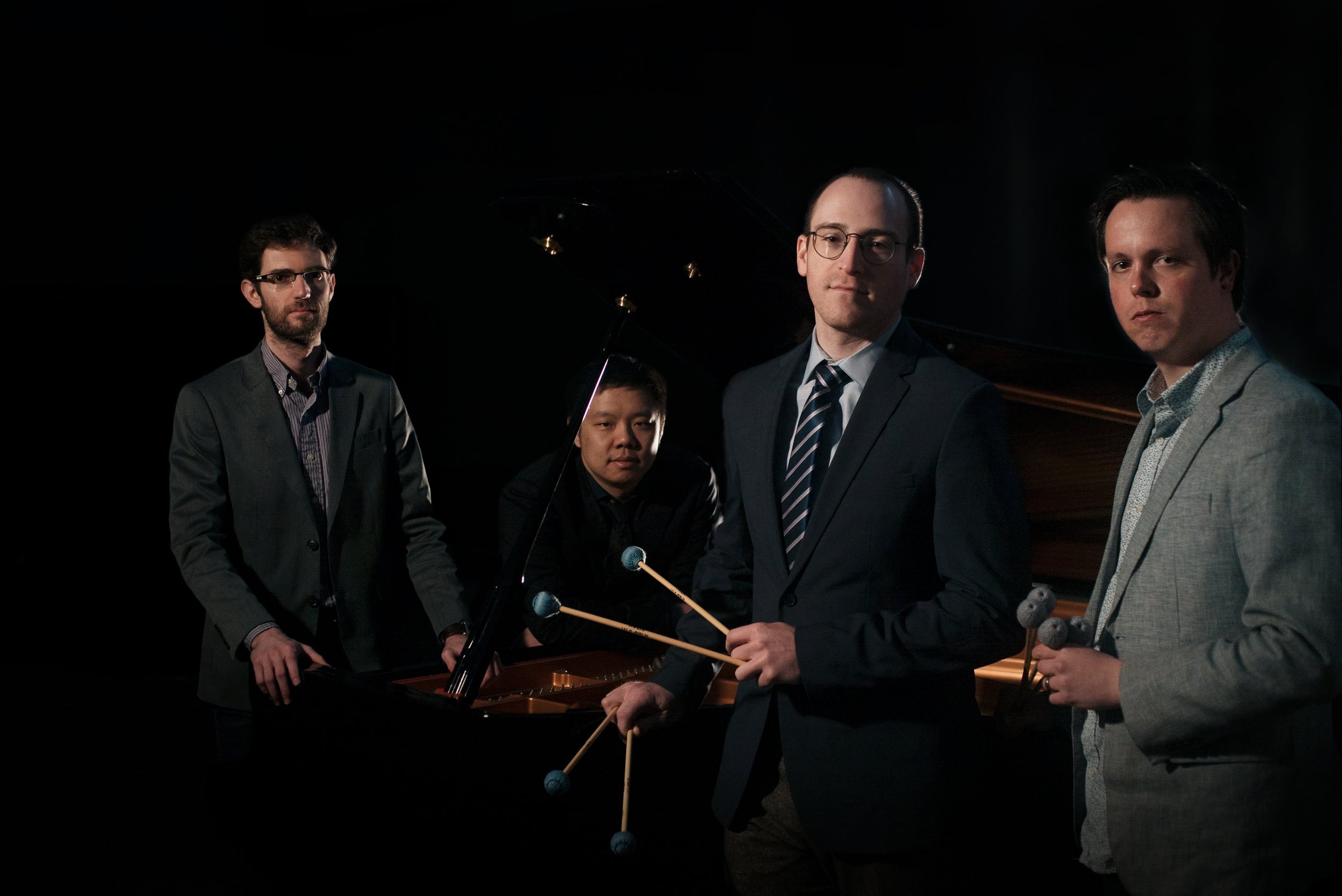The Wall Street Journal: ‘Big Things’ by Icarus Quartet Review: Percussive Powers
With the wisdom of hindsight, it makes perfect sense that elegantly balanced chamber ensembles like the string quartet or the woodwind quintet sprouted in the 19th century, and that the 20th century gave us more chaotically varied mixed-timbre groups and the high-energy assertiveness of percussion ensembles. A new recording by the Baltimore-based Icarus Quartet suggests that the 21st century might see a refinement of the mixed-timbre approach, with instruments that typically inhabit distinct sound worlds creating a common language.
The Wall Street Journal
By Allan Kozinn
In its debut recording, the group showcases new scores highlighting the unusual sound of its two-piano, two-percussionist configuration
With the wisdom of hindsight, it makes perfect sense that elegantly balanced chamber ensembles like the string quartet or the woodwind quintet sprouted in the 19th century, and that the 20th century gave us more chaotically varied mixed-timbre groups and the high-energy assertiveness of percussion ensembles. A new recording by the Baltimore-based Icarus Quartet suggests that the 21st century might see a refinement of the mixed-timbre approach, with instruments that typically inhabit distinct sound worlds creating a common language.
Read more here.
Gramophone: The icarus Quartet perform Big Things by Michael Laurello
Watch a behind-the-scenes studio film from the half piano/half percussion ensemble
Today’s film comes from the icarus Quartet, who invite you inside the studio to see the creation of their title track, released as a single, from their new debut album 'Big Things'.
Gramophone
Watch a behind-the-scenes studio film from the half piano/half percussion ensemble
Today’s film comes from the icarus Quartet, who invite you inside the studio to see the creation of their title track, released as a single, from their new debut album 'Big Things'.
‘The original version of Big Things was one of the first pieces I composed using a process of recording and improvisation, rather than traditional notation,’ writes its composer Michael Laurello.
Read more here.



